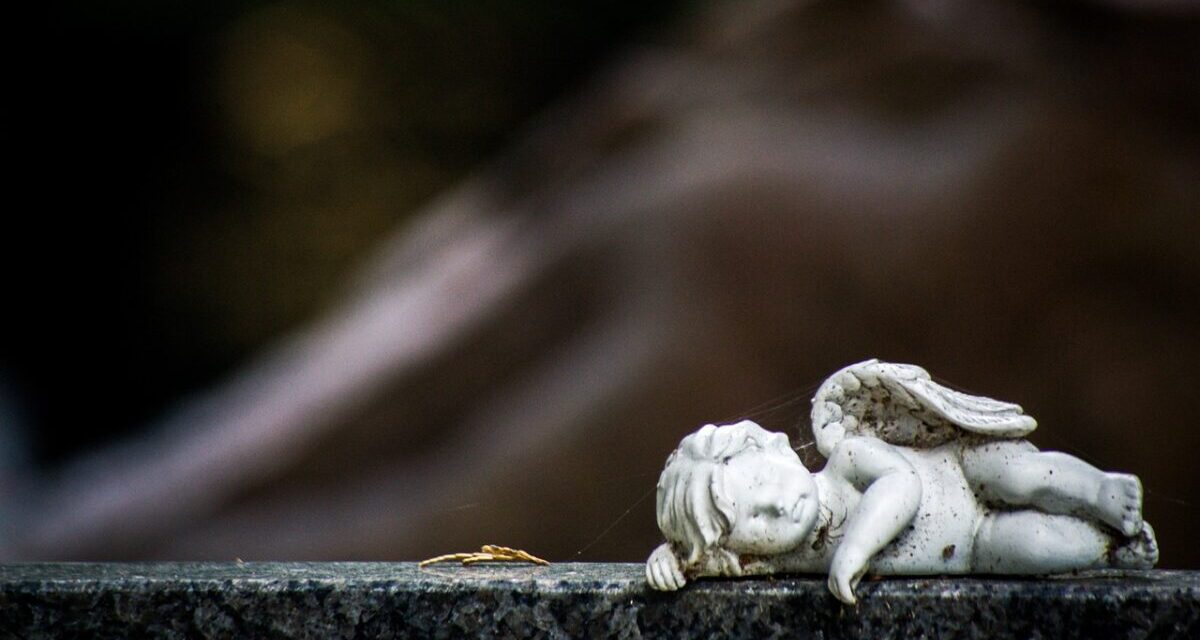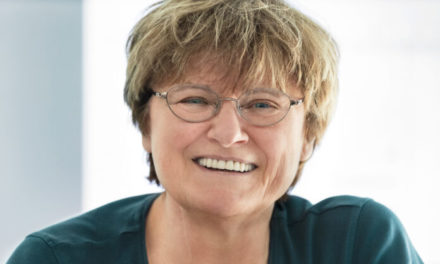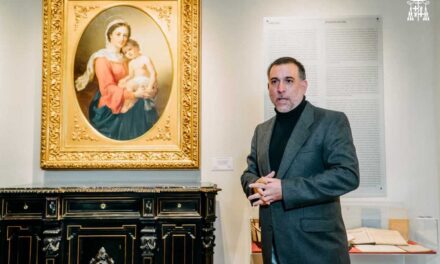Grief and moving on: "your deceased relative probably wants you to continue."
"Your absence has left a void that can never be filled " - we can often read on Facebook, on the personal pages of those who have lost a relative, or who remember him with a heavy heart on the anniversary of his death. According to Enikő Ferenczi, a Unitarian pastor and mental health specialist, after a while the mourner learns to live with the loss, the pain eases, but it takes at least half a year. many "stuck griefs" as a professional. It really doesn't matter how we try to help the bereaved process the death, but there are things we can really help with.
"The one we loved, the one who belonged to us, the one with whom we had a strong relationship, I think we will always miss him, but one simply learns to live with this lack. He moves on while naturally remembering"
- began Enikő Ferenczi, a Unitarian pastor and mental health specialist, whom we asked about how to move on after the loss of a loved one.
"This sounds a bit ugly now, but in professional circles we are used to saying that grief also has a methodology: it is a longer process, but after a certain time you can see that the grief eases a little"
he explained.
According to his experience, it takes at least half a year for the pain to subside.
"After half a year, we used to see that it is possible to live with this. Of course, it also depends on the type of death, but usually this is the time after which there is relief. After the one-year mourning that is customary in the culture here, many changes already occur: we see that the mourner can get back to normal."
he pointed out. He added that it is not always possible to let go of the deceased and move on. "As professionals, we encounter quite a lot of stuck grief. There are signs that someone has not crossed over. In such cases, the situation is much more complicated, there can be more pathological versions of it, and it is also possible that someone gets very stuck in this grieving role, which even provides him with a kind of protection from the world. As a family therapist, I learned - and we used to pay attention to this - that a healthy or healed attitude is that after a while, a person continues with his life," the specialist pointed out.
We can also process the unbearable
According to Enikő Ferenci, rites help, they are needed to process grief and move on. Remembrance helps and is healthy, since, as he said, according to everyone's faith, he is somehow connected with his loved ones.
"It is a well-known custom in our culture to go to the cemetery to remember and light a candle. These are very beautiful rites that we need. This does not mean that we have not processed the grief, but we simply remember the one who was important to us"
- the specialist highlighted the role of our habits.
We also asked how a person who has to experience the tragedy of losing a child can move on. Enikő Ferenci had encountered such a situation more than once as a hospital chaplain.
"I think that's the hardest part. I saw this mainly in the hospital, where I worked as a hospital chaplain for twenty years. The most difficult for me was the children's oncology department, because somehow we are - even if we are more spiritual or even more religious - when it comes to an adult, we can say that he still had a lived life, left behind memories, and the children we consider its loss to be the most unfair. I also have many clients who lost their adult or minor children and got stuck in a kind of stuck grief, but I have seen countless stories where the parents were able to overcome it. This is also a reassuring attitude for me: to see that, behold, a person can handle even those burdens that often seem extremely difficult or unbearable," he pointed out.
He needs someone to be by his side
Both professionals and non-professionals can help the bereaved, but it really doesn't matter how they do it.
"I always ask him what his faith is. Who believes what is very important in therapy. You can really get into this. Religious faith serves as a resource for a person, since a person who believes that he will meet his beloved is still a reassuring faith compared to believing that he will never meet him again. I always rely on the client's resources, and that helps a lot"
he explained.
What should someone who is with the bereaved but is not a professional say? - in this regard, Enikő Ferenczi recommends that you "don't be smart" and don't empathize by saying you can experience the other person's situation. Best to ask how you can help.
"I don't think we can ever put ourselves in a situation that we haven't lived through, and the grieving person doesn't need to. The grieving person needs someone to be by their side. In such cases, words can be quite weightless. Very often we hear the cheap consolations, which, when said, really hit the ground and are worth nothing, but you can ask: »listen, I think about you a lot. I'm here, you can count on me. How can I help you?''
- advised Enikő Ferenczi.
This gives the bereaved an opportunity to open up, and you can often see that it also helps if you can talk about the deceased, added the specialist. "It's important to be able to share stories with someone, even if you've told them countless times. He heals his soul with this. Often, simply being together helps: being there, making me feel that you are important to me, that I love you, this can also help a lot. At the same time, things that take you out of your usual daily rhythm can also help, because the bereaved, especially in the first period, tend to get wrapped up in their pain. This complete distance from society is natural at the beginning, since they do not need society's rickshaws and good cheer. The fact that he is able to connect back to everyday life after a while is a sign of healing and processing," he went on to list the possibilities for help.
If it is not possible to let go of the deceased and move on, according to Enikő Ferenczi, visiting a grief group or a psychologist is definitely helpful.
"I think it's good to belong to groups even before the end of the mourning year. I'm a big believer in the power of groups. I also work a lot in groups, their dynamics are completely different from individual spiritual care, but it depends on the composition, who is helped by what."
- he explained, stressing that there is absolutely no point in forcing it. "Some people find it good to go among people and share their problems, and some people don't feel comfortable with it, but it's worth offering as an opportunity. There are more and more mourning groups in Transylvania, and for a mourner, just getting dressed, going out, moving out of the ordinary can mean a lot," he pointed out.
"I am saying that life is so precious that it is not worth living without being able to experience its fullness. After the end of the year of mourning, you can think that your deceased relative must also want you to return to normal life and continue. These are the sentences with which you might be able to help"
- advised Enikő Ferenczi as a final word.
Featured image: Illustration/Just Agnes/Pixabay













